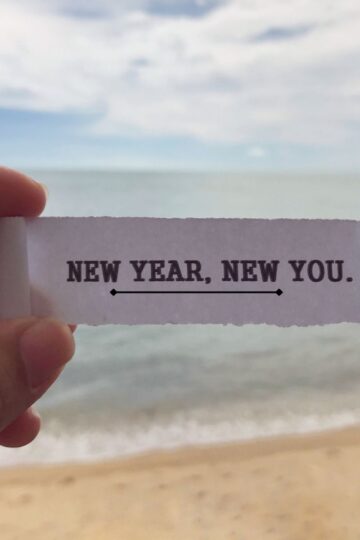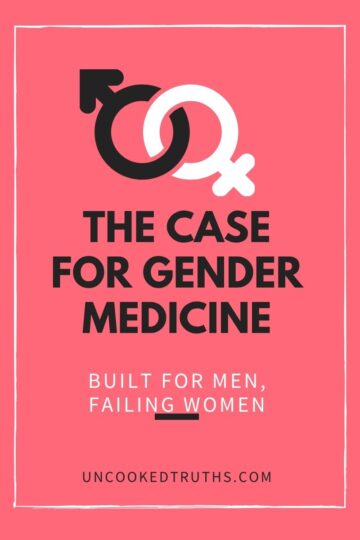This article is a reflection on the widespread misconceptions about menopause hormone therapy, the generational silence surrounding menopause, the cultural conditioning that tells women to suffer quietly, and one woman's decision not to pass that silence down any further.
Women still think hormones are dangerous. I hear it all the time. "I don't want to put that in my body." "My grandma lived to 90 without them." "I'm better off natural."
But what does natural mean? Plenty of things are natural. Tooth loss. Cataracts. Malaria. That doesn’t mean we ignore them and don't treat them. So why is hormone loss, the thing that affects every cell in a woman’s body, something we’re told to just “get through”?

Jump to:
The funny part is that these same women often spent half their adult lives on hormonal birth control with no second thought. They took it, trusted it, and got on with their lives. But when menopause hits, suddenly estrogen is a villain, and menopause hormone therapy becomes something to fear. Why?
Because we've been conditioned to believe that we do not need it, we can power through it, suffering is safer, that menopause is a quiet descent into invisibility, and being tired, sore, scattered, and drenched in sweat is just "how it is." We've inherited generations of fear, misdiagnosis, and silence, and we carry them like a badge of honor.
The Real Cost of Menopause
Let’s talk about what menopause used to mean. For centuries, it was an expiration date. We were not even supposed to live past menopause. A woman past childbearing years was labeled barren, spent, or hysterical if she had symptoms.
Her value diminished with her estrogen. And her symptoms? They were often dismissed or ridiculed. Women were called hysterical, paranoid, weak, and moody. In many cultures, they still think the same. The term "hysteria" itself comes from the Greek word for uterus.
What happened to women who lost their hormones and their minds? Many were locked away in asylums, labeled mad, forgotten. They weren’t crazy; they were in a state of complete hormonal collapse.
Even now, the suicide rate climbs as women approach menopause. (👉 symptoms no one warns you about) Depression spikes. Marriages strain. Focus disappears. And we still treat it like it’s nothing, and we can fix it with a brisk walk and some flaxseed.
More to read: Menopause Support for Husbands: What You Need to Know
What Happens When You're Not Heard
I watched this play out in real time. My mother entered menopause at 39. I was 10 years old. All my childhood, I saw a woman screaming in frustration, crying, drenched in sweat, pacing through sleepless nights. She worked full-time, cooked, cleaned, and tried to raise us while her body betrayed her and her mind spiraled. We didn’t know what was happening. Neither did she.
When in a good mood, this woman was sweet and loving, but over the years, those times became more and more rare. She ended up in hospitals more times than I can count, for her thyroid, her blood pressure, her blood sugar, and her heart. No one connected the dots. No one said, "This woman is hormone-deprived and needs hormone replacement therapy."
She was diagnosed with hypothyroidism, then later with diabetes and heart disease, all textbook consequences of early, untreated menopause. She also took antidepressants. Her hormonal imbalance was so severe that every part of her life was affected. And ours as well.
She wasn’t crazy. She wasn’t weak. She was drowning, and no one threw her a rope. Only when I entered this stage in my life, I start to understand what she went through. The sad part, I nearly followed the same path, and I was terrified.
Doctors told me I was fine when I was clearly unraveling. When I wasn't sleeping, when I couldn't focus, when my heart was racing at rest, when I was forgetting words I’d known all my life, when I was sitting at the edge of the bed crying before work, they told me it was just stress. Just age. Just me. Not low estrogen, not low testosterone levels, not low thyroid hormone levels.
PET Saved My Sanity
I always felt like I was in a constant battle with the doctors, so when I got my first prescription for PET hormones(Progesterone, estrogen, and testosterone), I thought the universe finally heard me. I won the battle, but not the war.
The first time I used estrogen, I lay down and slept for four hours in a deep, uninterrupted sleep. No hot flashes. No panic. Just peace. It was the first time in years I remembered what "okay" felt like. I woke up crying in happiness.
When I added progesterone, my sleep deepened. I had spent four years in a half-dead state, unable to string sentences together, exhausted, unmotivated, disconnected. With the right hormones, my brain began to function again. I could focus. I could work. I could think.
The muscle pain I was told was "fibromyalgia" began to fade. The constant body aches vanished when my estrogen reached a therapeutic level. My frozen shoulder started to defrost. My dizziness disappeared. Testosterone cleared the fog and brought back my clarity. It didn’t turn me into someone else and never gave me a mustache. It gave me back my own self.
This wasn’t magic; it was medicine.
We Have to Break This Pattern And The Silence
Doctors cannot keep telling women to grind their teeth and gut it out. We can’t let another generation suffer in silence, thinking their minds are slipping or that their value disappears when their periods stop. We cannot allow doctors to continue dismissing this life stage as something we should just "cope with."
You don’t have to take hormones. But you deserve to know what they do. You deserve a real conversation, not a shrug and a pamphlet.
Note: Is This Normal?” And Other Midlife Body Mysteries
My mother didn’t get help. I did. And if my daughter ever needs it, I will be here to guide and teach her what I never knew until I started to educate myself.
Because this ends here.
With me.
- Why Is Hormone Therapy Treated Like a Dirty Word?
- Confessions from the Other Side of 50
- How Mounjaro Changed The Way I See Food
- The Guilt of Getting Better on GLP‑1s
- Food Noise or Hunger? How to Tell the Difference
- Menopause Support for Husbands: What You Need to Know






Leave a Reply